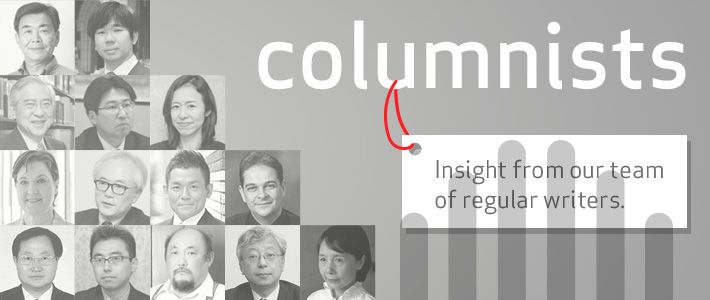
Japan and China Should Get Back to Basics
Politics- English
- 日本語
- 简体字
- 繁體字
- Français
- Español
- العربية
- Русский
The Wisdom to Distinguish Militarists from Ordinary People
China’s last-minute cancellation of a ceremony to commemorate the fortieth anniversary of the normalization of diplomatic relations between Japan and China suggests that the attitudes that drove the two countries to normalize relations have been forgotten—or at least are no longer taken seriously.
The normalization of relations was based on an approach that recognized the need to condemn the “militarists” who had caused the war between Japan and China that lasted through the 1930s and 1940s. But at the same time, it was acknowledged that both the Japanese and Chinese peoples were victims of the war. The idea was that the ordinary people of the two nations should work together from that perspective to build the foundations of friendship. This view, which was put forward by Mao Zedong and Zhou Enlai, was one that the Japanese also supported in principle—albeit with some reservations. In a sense, it was a tacit agreement to draw a line; but the extent to which the two sides were prepared to observe this distinction was, in practice, a politically delicate matter.
Take the term “militarists,” for example. Once you start to debate who was a militarist and who was not, the situation is not so clear-cut. But China’s view has been that in its dealings with other countries, Japan must at the very least treat as “militarists” those individuals who are regarded internationally as major war criminals (Class A war criminals, for example), regardless of Japanese domestic feelings on the matter. This is why China’s leaders are so sensitive to statements and actions made by some of Japan’s politicians, whose words and deeds can seem to undermine the distinction between a small number of “militarists” and the rest of the population.
The fact is that Chinese politics has always used “villains” drawn from the past to build the future.
The Importance of Villains
The reality is, however, that the Chinese side itself has blurred the distinction that was supposed to provide the foundation for friendly relations as the Mao-Zhou era has receded into the annals of history. Clear proof of this can be seen in the harassment that Japanese individuals and companies in China suffer whenever tensions mount between the two countries. Such protests and violence confound ordinary Japanese people with the “Japanese militarists.” And when this happens, any sense of unity between the two peoples goes out of the window.
Villains are essential for Chinese politics and foreign policy. The existence of villains who can serve as scapegoats prevents individual issues related to territorial disputes or divergent interpretations of history from contaminating Sino-Japanese relations as a whole. The problems start when conditions arise in which these villains include not just “certain Japanese politicians” but the country’s top leadership or the government itself. In this situation, the Chinese authorities lose a vital part of their strategy for “defending the fortress” of Sino-Japanese relations. In such a situation, Japanese attempts to try to explain Japan’s true intentions and ask for understanding carries little weight with the Chinese, as Japan discovered time and again during negotiations in the lead-up to the Sino-Japanese War.
On the other hand, when Chinese people start carrying out acts of violence against Japanese citizens and Japanese businesses, and the Chinese government fails to control the violence adequately, it is only natural that people on the Japanese side lose their trust in the Chinese authorities, in Chinese society, and in the Chinese system. The people of both countries should take the time to reflect seriously on our history: It was precisely this kind of distrust of China that was used as one of the main political excuses for the use of military force by Japan’s armed forces in the 1920s and 1930s.
Another Important Principle
Another principle behind the normalization of relations was the idea that both sides should “seek common ground, while remaining mindful of differences.” This phrase has often been interpreted in Japan to mean that the two sides should “look beyond small differences and concentrate on the key similarities.” But the true meaning of the phrase is more subtle: “While preserving differences (whether great or small), let us pursue common interests, common problems, and common objectives together.” It is in effect a highly strategic idea.
In recent years, however, there has been a gradual shift in the nature of these “common interests,” which have come to mean nothing more than the pursuit of commercial profits.
In the context of Japan-China relations, it is naturally important for each side to understand the other’s perspective, but even more important, perhaps, is the political will to pursue shared strategic aims. We need to develop the political will and ability to pursue our shared strategic objectives and tackle global tasks without over-reacting to the differences between the two countries.
(Originally written in Japanese on September 25, 2012.)
Japan China Zhou Enlai Ogoura Kazuo history militarism Sino-Japanese War normalization of diplomatic relations class-A war criminals Mao sovereignty